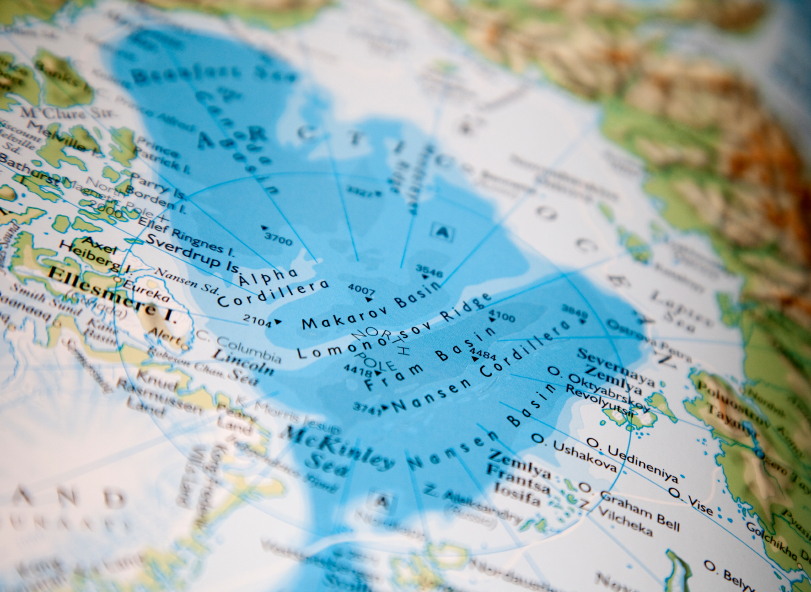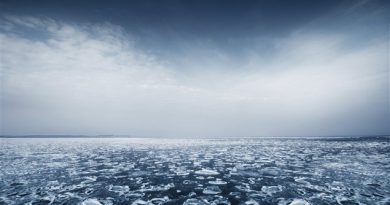Study envisions fallout from oil spill in Arctic Canada

A well blowout, pipeline breach or vessel accident in the Canadian Beaufort Sea could spew spilled oil westward for months, polluting waters off Alaska and soiling habitat used by whales, seals and migrating seabirds, according to a study released Friday by the World Wildlife Fund.
The study, which features an interactive map, examines the trajectories of oil and the resulting impacts from four types of spills: a deep-water well blowout, a shallow-water well blowout, a break in a subsea pipeline transporting oil and an accident with a shipping vessel. In all, 22 spill scenarios were examined.
The study was put together for WWF by RPS Applied Science Associates Inc., an international technology company that has developed systems of computer modeling for biological, chemical and physical processes.
It comes as Canadian officials are considering plans by companies to drill for oil in the far offshore areas of the Beaufort Sea in waters as deep as 1,500 meters — a stark contrast to most past North American Arctic offshore drilling, which has targeted shallow areas.
A joint venture formed by Imperial Oil, Exxon Mobil Corp. and BP is seeking to drill prospects about 110 miles northwest of Tuktoyaktuk, Northwest Territories, and Chevron is seeking to drill about 155 miles from that community.
Policy change considered
The pending Canada Beaufort drilling plans make the spill-study release timely, WWF representatives said.
The study highlights the importance of the Beaufort Gyre, which sends currents in a westerly direction, and the vulnerable natural resources that are shared by the United States and Canada, said Margaret Williams, managing director for WWF’s Arctic field program.
“The risk can’t be isolated in one country or another,” she said in an interview.
Bowhead whales, for example, migrate through U.S. and Canadian waters, with many spending the fall in Russian waters of the Chukchi, she said. “The bowhead whale is a great symbol of why our countries need to work together,” she said.
The worst-case scenario examined in the study was a deep-water well blowout that would release 7.2 million barrels of crude oil over 120 days. That would be more than the 4.1 million barrels estimated to have been released by the 2010 Deepwater Horizon spill.
Alaska, indigenous communities could be affected
The study also examined much smaller potential spills, such as a shipping accident that would discharge 21,000 barrels of fuel over six hours or a barge that would discharge 5,400 barrels of diesel over six hours. Such spills would also spread contamination across the Beaufort into waters off Alaska and into areas important for wildlife and for Native subsistence harvests, according to the study.
Spills would be difficult to contain in icy conditions, according to a WWF fact sheet that accompanied the study.
“In particular, spilled oil may travel considerable distances to the west and north of the spill site when trapped and drifting within sea ice, affecting habitat for a wide range of marine species. As a result of this spread of oil, coastal oiling could be international issue — there may be a relatively high chance that oil spilled in Canadian waters could reach U.S. shorelines and affect communities there, as well as those in Canada,” the fact sheet says.
Response capabilities are limited, the study says. Dispersants, used heavily in the Deepwater disaster, would likely cause problems in the Beaufort, according to the WWF.
“Use of chemical dispersants at deep-water blowout sites may create ‘toxic plumes’ of chemical residue to concentrate along the Beaufort shelf, an area that is home to a diverse range of species and essential to the health and productivity of Beaufort Sea ecosystem,” the fact sheet says.
Upcoming lease sales
Also on Friday, the U.S. Bureau of Ocean Energy Management announced that it is seeking comments on a potential 2017 lease sale in U.S. waters of the Beaufort.
The “call for information and nominations” seeks advice from oil companies on areas of the Beaufort that might be good prospects for leasing, and it seeks input from other parties, including the general public, on issues that should be considered in the planning process.
“There is significant oil and gas potential in the Beaufort Sea, but this part of the Arctic Ocean is also a unique and sensitive environment that is critically important to the subsistence needs of Alaska Native communities on the North Slope,” BOEM Acting Director Walter Cruickshank said in a statement. “Any consideration of future leasing must be done in a way that identifies not only the areas that have resource potential, but also those areas that must be protected for wildlife and traditional uses.”
Though BOEM will be considering leasing only in U.S. waters, Williams said activities across the territorial border should be considered as part of the cumulative impacts of oil and gas development.
“If our nations are not working together to look at the cumulative impacts, it really puts the species that are already experiencing climate impacts at a greater risk,” she said.
Contact Yereth Rosen at yereth@alaskadispatch.com
Related stories from around the North:
Canada: Nunavut fuel spills are down, but accidents still happen, CBC News
Finland: WWF Finland concerned about oil leak in Baltic Sea, Yle News
Iceland: Eco-group questions Iceland oil, Irene Quaile, Deutsche Welle
Norway: Conservative victory in Norway: What does it mean for the Arctic?, Blog by Mia Bennett
Russia: Putin signs law allowing oil and gas corporations to defend infrastructure, Blog by Mia Bennett
Sweden: Swedish foreign minister defends Arctic oil stance, Radio Sweden
United States: Oil-soaked snow removal continues at Prudhoe Bay, Alaska, Alaska Dispatch



